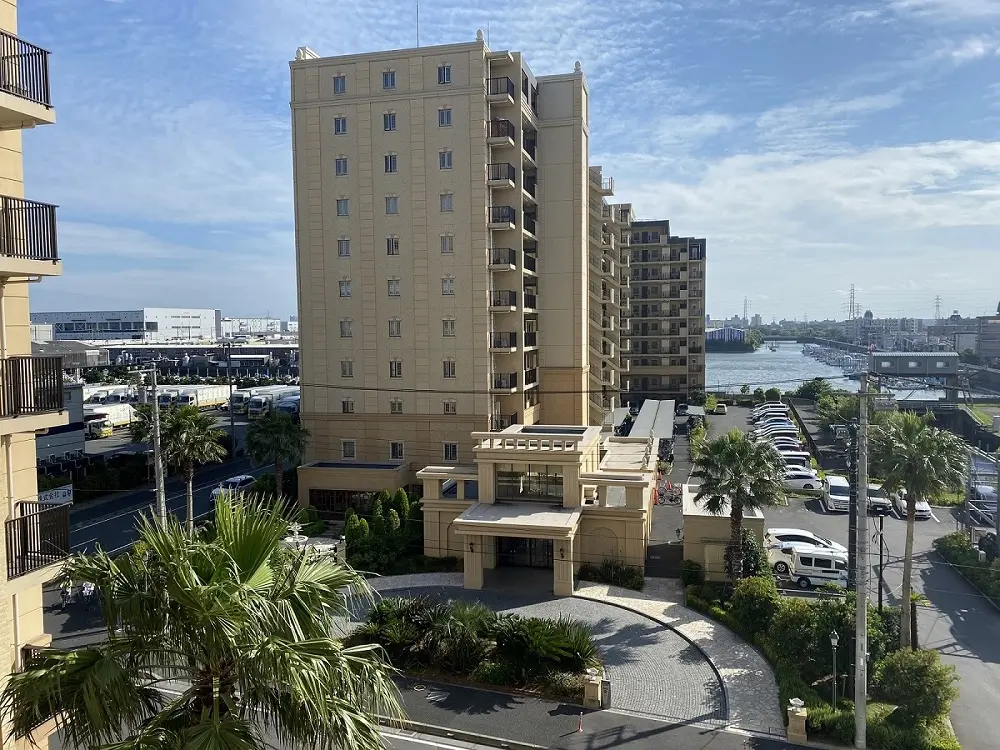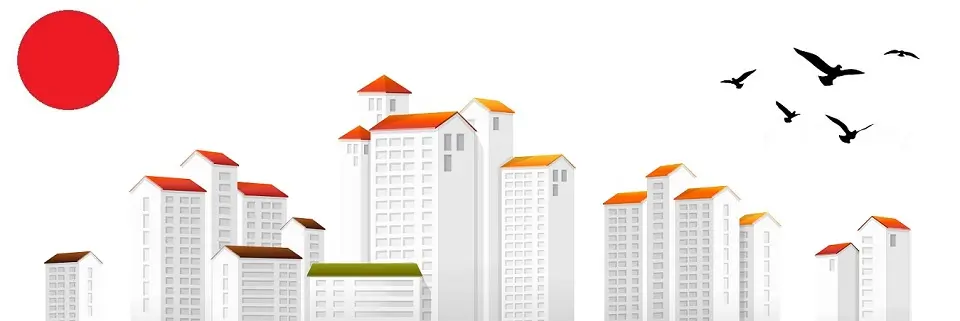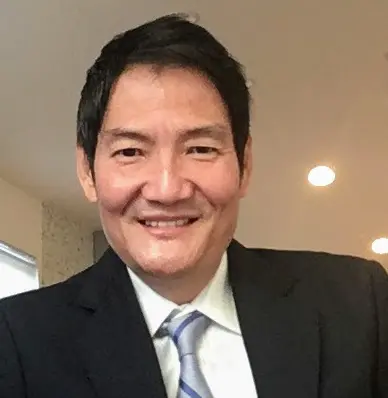Finding and Renting Apartments or Shared Houses in Japan as a Foreigner

When you decide to move to live in Japan, the first challenge is choosing the area of the city that suits you the best. Many times, you will have to balance convenience with rental costs. The next phase is finding an apartment efficiently and then completing the formalities of renting it. Depending on the place, finding and renting an apartment in Japan is fun but sometimes challenging.
Finding and renting an apartment or house and moving in can be daunting. Finding and renting an apartment in Japan is the first hurdle foreigners face after arriving here. Sometimes, the same challenges remain even while moving to a new apartment.
I am Japanese but was raised overseas, so many things left me scratching my head when I moved back to Tokyo.
I was used to Western standards, so the first shock was the tiny size of Japanese apartments, the huge rent, and the various upfront costs.
And I am not alone; many foreigners living in less densely populated counties and cities are surprised by the small Japanese apartments. Many foreigners also struggle while renting an apartment in Japan for various reasons, including lacking Japanese language skills.
This article is meant to guide foreigners in finding and renting an apartment in Japan, including shared apartments. I will cover the cost of rent, sources, and other formalities for renting accommodation in Tokyo and other cities in Japan.
(You may also like to read about buying a house in Japan.)
Flow of this Apartment Renting Guide
As this article is quite big and exhaustive, let’s talk about the flow of this guide.
We will follow the following flow for this article:
- Discuss the apartment rents and associated costs as the first step.
- Know about the Japanese terms and Lingo before we start finding an apartment.
- Know about types of lease agreements.
- Documentation requirements for renting an apartment to prepare for those before we approach a broker or apartment owner to rent.
- Now, once we are ready, we will discuss how to find an apartment in Japan and all available resources.
- As the next step, we will discuss furnishing the apartment.
- Introduction to shared houses (sharehouse).
- Resources to find a share-house in Japan.
Is Renting an Apartment in Japan Expensive?
Renting an apartment in Japan is expensive and requires significant upfront money. So, be prepared to shell out that money. If your destination is Tokyo, you may like to read about the average rent there. We also have a guide about the prefectures with the cheapest rents in Japan.
The upfront cost is a big hurdle for both foreign and Japanese residents. Usually, you must pay three to five months’ rent in advance!
However, you can save on this cost by visiting apartments like UR. UR apartments charge only an upfront amount worth two months of rent, but the best part is that it is refundable.
Factors Which Affect Apartment Rents in Japan
You can live in a metropolitan area in a major city like Tokyo or Osaka or further away from the city center. The rent of apartments depends on location, size, and distance from the nearest train station.
When searching for an apartment in metropolitan areas of Japan, you will receive information about the walking time from the nearest station, as well as floor plans detailing the layout and costs.
Moreover, the type of structure, such as multi-story apartment buildings or wooden houses with 1 to 3 floors, is also a significant factor affecting the rent of housing in Japan.
The age and condition of the building also affect the rent. Newly constructed or recently renovated buildings often have higher rents due to their modern amenities and better overall condition.
Nearby amenities like supermarkets, shopping centers, parks, schools, and hospitals also influence rental prices. Apartments situated in neighborhoods with abundant facilities and services often have higher rents.
In some areas, rental prices may fluctuate seasonally. For example, in university towns, rents may rise during the beginning of the academic year when students demand more.
Costs for Renting an Apartment in Japan
The most common options are choosing an apartment, mansion, serviced apartment, or individual house.
Apartments are usually two stories with no common tenant entrance. A Mansion is usually in a multi-storied building with a common entrance with auto-lock and intercom, requiring a key or passcode to enter the property.
Rent (Yachin, in Japanese) is more expensive for mansions in Japan. Foreigners find the name “mansion” funny at first, given the size of these apartments, compared to what you envision in the West.
Serviced apartments are fully furnished but are generally very expensive. Lately, some options have come up where you can rent fully furnished places with no upfront costs at lower than high-end service apartment rents.
Rent in Tokyo is expensive, especially in popular downtown areas. Some people would opt to rent in the suburbs and take a longer commute instead.
Moreover, longer commute in Japan’s bigger cities is much less cumbersome than in many other countries, thanks to Japan’s efficient public transportation infrastructure and transportation system.
Cost Breakup for Renting an Accommodation in Japan
The Upfront Costs
While month-to-month rent can be somewhat reasonable, it’s the upfront costs you must watch out for. Here are some of the common ones:
- Advance monthly rent (yachin)
- Key-money (reikin)
- Refundable security deposit (shiki-kin)
- Broker’s fee (chukai tesuryo),
- Guarantor fee (hoshonin hiyo)
All the above-mentioned upfront costs are usually in terms of the monthly rent.
For example, assume you rent a place for ¥100,000 — typically for an older apartment or house. In that case, the deposit, key money, and advance rent would equal one month’s rent. So, the initial cost would be ¥300,000 upfront plus the guarantor’s and broker’s fees, if applicable.
The refundable deposit and key money could equal two months’ rent for comparatively newer buildings. So, the upfront cost could be ¥500,000 plus the guarantor and broker fees, if applicable.
Advance monthly rent
As is common in most countries, you must pay a monthly advance rent. This advance rent is worth one to two months’ rent and must be paid when signing the contract for the apartment or house.
Key Money
The concept of key money (礼金, reikin) surprises foreigners looking to rent an apartment in Japan.
Key money is a non-refundable tribute or gratuity payment to the landlord. Personally, I think the landlord should pay the tenant to thank them for renting their property!
Key-money payment for renting has been a very old tradition in Japan. However, nowadays, many properties offer zero key money as the key selling point in their ads.
The deposit is partially refundable. However, the tenants must pay house cleaning fees when moving out, which are deducted from the deposit.
Renewing the lease usually requires an additional payment equivalent to one month’s rent. Moreover, early cancellation requires advance notice and costs a payment equal to one month’s rent.
Services like UR Housing can help cut the upfront costs drastically as they only charge the advance security deposit equivalent to two months’ rent. Moreover, this security deposit is 100% refundable if you do not cause significant damage.
Security Deposit
The upfront payment of the security deposit (敷金, shiki-kin) covers any damage during your time in the apartment. However, it is sometimes not returned even when the place is immaculate. Confirm the terms of your security deposit payment when negotiating the contract. It will generally equal one- or two months’ rent.
Real Estate Brokerage Fee
The real estate brokerage fee (仲介手数料, chukai tesuryo) goes to the real estate company that found you the apartment. It typically costs money equal to one- or two months’ rent.
Of course, many foreigner-friendly brokers don’t expect you to have all of this. These brokers focusing on foreign clients would need to see your passport and whether you have a credit card or not.
However, if a guarantor is required and you can’t find one, there are 3rd-party guarantor companies who will act as your guarantor by charging a fee.
Other Costs
Apart from the upfront cost and rent, there is another unique traditional system in Japan for apartment renewals. While renewing your apartment lease, you need to pay a renewal fee (更新料).
You must pay the landlord a renewal of the apartment lease fee every two years after starting a contract. This non-refundable fee typically costs up to one month’s rent.
A Complete Guide to Japanese Apartment Lingo

If you’ve started looking for a home in Japan, you’ve likely encountered a barrage of unusual terms, making the already stressful task of house hunting all the more challenging! Despite many of them being English, terms like “mansion” have an entirely different meaning in Japan, warranting careful research. To help your search for the ideal Japanese home, we’ve created a complete guide to Japanese apartment lingo!
What Will We Cover?
The following section about the terminologies related to housing in Japan will cover various types of housing units and also the terminologies people use to define the layouts of apartments or houses in Japan.
Mansion
Unfortunately, your dream of residing in a gigantic mansion will likely not come true in Japan.
In Japanese, ‘mansion (マンション)’ refers to an apartment complex or condominium, with an entrance on the first floor leading to several floors above, housing multiple units.
Mansions can be any size, and you can rent or purchase them. As your door likely won’t be accessible from the street, those who live in mansions will generally enjoy top-notch privacy and security. Mansions are also often made from steel frames and reinforced concrete.
Apartment
Japanese pronunciation for an apartment is ‘Apato (アパート).’
Japanese people call a housing unit an apartment if it is in a single, double, or triple-story building. In these apartment buildings, multiple units are directly accessible from the street. In addition, many Japanese apartment buildings are cheaply constructed from timber or lightweight steel and are sometimes prefabricated off-site.
Unlike mansions, apartments are often rented out and rarely sold as individual units. While there is no technical or legal definition of dividing mansions and apartments, Japanese people refer to each as a separate accommodation style based on the above guidelines.
Sharehouse
Sharehouse is a term used for shared houses in Japan.
A shared house is a popular source of accommodation for fresh ex-pats. Sharehouses are a growing trend across Japan for local and international students and workers.
Share houses are where a group of individuals live in a single dwelling with shared utilities, facilities, and private rooms. Despite the lack of privacy, rent is usually cheap, and making friends is easy.
Ikkodate
An ‘ikkodate (一戸建て)’ is a detached, individual house that sits upon a plot of land. These houses are available for both buying and renting. An ikkodate is best for families or those desiring space and land. However, they are significantly more expensive than apartments and mansions and are further away from train stations or commercial hubs.
Kominka
A ‘kominka (古民家)’ is a traditional Japanese home from at least 50 years ago or more.
While there is no legal definition, kominka were often constructed using ancient Japanese architectural staples such as wooden structures, dark wooden panels, and tatami straw mats. Many also have thatched roofs or traditional Japanese roof tiles.
If people are still living in a kominka property, they tend to maintain these beautifully by restoring them periodically. However, many of these are left to rot, dotting sleepy towns as a stark reminder of Japan’s shrinking population and rapid urbanization. You can purchase these housing units cheaply for a DIY renovation project.
Chuuko
The word ‘Chuuko (中古)’ means secondhand or used. Japanese people call a property Chuuko if someone has lived there for at least two years. However, though these properties are secondhand, unlike Kominka properties, chuuko properties are not very old. Chuuko houses are not more than 50 years old.
Shinchiku
Unlike a ‘chuuko‘, a ‘shinchiku (新築)’ is a newly built home with no residents within the past year. There is also a similar type known as a minyuukyo bukken, which has had no residents but is older than one year.
Tochi
‘Tochi (土地)’ refers to a block of land without any building. For example, in Japan, people demolish very kominka-style houses beyond renovation. This frees up the land for people to buy and build property. According to the Real Property Registration Act, 23 different types of ‘tochi‘ have varying uses. Along with property, this includes farms, forests, car parks, and more.
Reform (リフォーム)
Often in Japan, you’ll hear the English word “reform.” However, Japanese people use this word incorrectly to mean “renovate.”
Instead of simply demolishing, construction companies or individuals will “reform” an old property to eliminate defects and resemble a new one. These “reforms” are often small-scale and cosmetic, such as putting in a brand-new floor, kitchen, bathroom, or lighting system and repainting and touching everything up.
However, Japanese people also use “renovate” to refer to more extensive work to improve the property and increase its value. This could include a redesign of the house, new plumbing and electricity systems, extensions, landscaping, and more.
“LDK” for Types of Home Layouts
You’ll undoubtedly encounter a series of letters and numbers during your searches, like 2LDK. These housing terminologies refer to the layout of the housing unit, with each letter representing the following:
- L: Living Room
- D: Dining Room
- K: Kitchen
The number at the beginning indicates the number of potential bedrooms. For example, a 2 LDK apartment has 2 rooms besides the living, dining, and kitchen. So, to simplify it for you, please consider the first number as the number of bedrooms in your Japanese apartment. Hence, a 2 LDK apartment means a 2-bedroom apartment or house with a living room and a dining & kitchen area.
However, most Japanese apartments will have an interconnected living room, dining room, and kitchen, so don’t expect them to be separate. Of course, the apartment will also include toilets, bathrooms, and more, so check the property’s details to see any additional features or demerits.
Individual Rental Contract Vs. Company Contract
If you have not done so already, it is better to have a bank account with automatic monthly rent payments via bank transfer or ‘Furikomi.’
Entering a housing rental contract as an individual also usually requires having a guarantor (Hoshonin). If you do not have one, you can pay a fee to a third-party company, typically half a month’s rent or, in some cases, equal to one month’s rent.
If you are fortunate to be sponsored by your company, in some cases, the lease agreement is directly between your company and the landlord and not you as the individual.
Going for the company-leased house or apartment is beneficial as you have more leverage in negotiating the price & terms. It also removes the stresses of lease renewal or terminating the contract.
In Japan, rental contracts usually last two years. This will also save you the effort of finding a guarantor. In addition, landlords typically feel reassured if the contract is with an established company, as there is less perceived risk.
What Will I Need to Rent an Apartment in Japan?
While different house owners or real-estate companies in Japan have varying requirements ranging from absurdly strict to fair and lenient, you’ll generally need the following when renting an apartment in Japan:
- Residence Card (with at least 6 months – 1 year remaining/ability to renew)
- Passport
- Japanese phone number (mobile is OK)
- Stable income (pay slips for proof are sometimes necessary)
- Japanese bank account
- Emergency contact in Japan
- Guarantor in Japan (with a steady paycheck)
Of course, many of the foreigner-friendly companies don’t expect you to have all of this, with just a passport and credit card more than enough in some cases. If you can’t find a guarantor, there are also 3rd-party guarantor companies who will act as your guarantor for a fee.
How to Find an Apartment as a Foreigner in Japan?
You can search for an apartment online or use a real estate broker. Nowadays, foreigners in Japan can access many English-speaking agencies and online services to find the right accommodation.
If your employer provides a real estate broker, just let them know your requirements and budget, and they will provide you with options and floor plans. If not, you can visit real-estate brokers directly. However, be mindful that some agents may not be English-speaking.
Using real estate brokers is often a better option for finding an apartment, even though it has additional initial costs. A broker’s deeper insight and knowledge of a specific area’s real-estate properties can save valuable time researching the properties. Moreover, a broker is better equipped to negotiate the terms on your behalf.
Moreover, your Japanese level will also need to be quite high to navigate the complex lease agreements and terms. Having an English-speaking broker will be helpful in this regard.
Resources for Finding an Apartment in Japan
Despite all the above-mentioned issues in finding an apartment, Japan is flooded with unused apartments and properties begging to be filled. I have compiled a list of resources that you, as an ex-pat in Japan, will find useful for finding suitable accommodation. These resources are as follows:
Searching Online
A quick search in Japanese or English will bring up a litany of websites advertising places for rent. Some of the most popular include:
- SUUMO (https://suumo.jp/)
- HOMES (https://www.homes.co.jp/)
- At home (https://www.athome.co.jp/)
- Able (https://www.able.co.jp/)
- Chintai (https://www.chintai.net/)
These websites are all in Japanese and cater to Japanese nationals, increasing the possibility of rejection. You’ll stand a better chance with a Japanese partner or guarantor. Otherwise, it’s best to go with a real estate company geared towards foreigners to find good accommodation.
Visiting a Japanese Real Estate Company
Scattered across the cities and suburbs of Tokyo and beyond, dropping by a real estate company’s office is also super easy. Here, an agent can guide you through options that suit your needs and your budget.
Be aware that just because the agent is friendly and welcoming doesn’t mean they won’t eventually reject you. Even if they’re happy to have you as a customer, the acceptance is all up to the landlord.
However, please don’t let the above statements scare you. Many foreigners in Japan do not speak Japanese and live happily. This is because there are options available to find accommodation easily.
Foreigner-friendly Real Estate Companies in Japan
If you’re coming to Japan without an established support system or contacts, your best bet for finding an apartment is through a foreigner-friendly real estate company.
While some of these real estate brokers serving foreigners are less than reputable, there’s a growing industry of trustworthy, reputed companies with strong language support and agreeable terms.
Many properties of these foreign-friendly real estate companies are shared houses (called “share-houses” in Japan), with some private apartments also available. They are generally aimed at stays lasting 1-2 years. These properties often provide Wi-Fi, furniture, bedding, utilities, etc.
Please note that some companies mentioned under the Share Houses rentals also provide services for rental apartments and vice versa.
Here are some of the most prominent real estate companies in Japan:
Best Estate, Japan
Established to meet the needs of the foreign community in Japan, Best-Estate.jp offers multilingual support, 24-hour reception, and virtual house hunting through Zoom.
The program is for foreigners only and boasts a dedicated app to help you navigate any troubles. As the service is run by GTN (Global Trust Networks), you can sign up for a sim card or Wi-Fi package through the same company.
SOCIAL APARTMENT, Japan
Along with your private room, in-house cafes, billiard rooms, fitness studios, business lounges, and rooftop terraces are just some of the frills you can expect to enjoy with Social-Apartments.com. While there are some initial upfront costs, the rent is reasonable and includes a fixed rate for utilities. Primarily located near major transport hubs in the Kanto and Kansai areas, these share-houses can be used for short-term and long-term accommodation.
Modern Living, Japan
Modern Living, Japan boasts a collection of trendy furnished apartments with an agreeable price range located in the popular districts of Tokyo and Saitama. With no initial fees, utilities included a deposit that is returned upon moving out (assuming the place is in good shape), signing up with Modern Living Tokyo is stress-free and very reasonable.
MetroResidences.com
MetroResidences.com provides both mid-term and short-stay weekly rentals in a range of sizes spread across the popular neighborhoods of Tokyo. Being foreigner-friendly, they offer multilingual service and are often favored by those seeking a comfortable, homely stay during extended business trips in Japan.
AtHearth
You can use the services of AtHearth of Tokyo even before coming to Japan. Before moving to Japan, you can check the listed properties online and complete contractual formalities and payments online. They provide support in both English and Japanese languages. They also support foreigners with other formalities like utility bills, Wi-Fi contracts, and even opening a bank account.
GaijinPot Apartments
Based out of Tokyo, GaijinPot Apartments is part of GijinPot.com. You can use their services to find rental apartments all over Japan, but they can be more useful for finding apartments in Japan’s Kanto and Kansai regions. So, if you want to rent an apartment in Tokyo, Chiba, Saitama, Kanagawa, Osaka, Kobe, Kyoto, etc., you can use their online services in English.
Asumirai, Fukuoka
Like AtHearth, Asumirai offers support for renting an apartment, opening a bank account, making utility connections, disposing of garbage, and other matters. They are based there if you want to rent a place in Fukuoka prefecture.
Although their website is in Japanese, they have provided a Google translation button to translate it into Japanese, English, Chinese, or Korean. They also offer support in these languages.
Apart from renting, they also provide services for buying & selling real estate.
Other Multilingual Online Real Estate Resources in Japan
The following websites offer multilingual services for searching for finding and renting accommodations in Japan:
YOLO Home, Japan
In the eyes of Japanese real estate companies and landlords, stability, and normalcy are valued over all else. The possibility of foreign residents fleeing home with unpaid rent, fees, and damages makes some people resist non-Japanese tenants. While things are gradually looking better, this is still overtly the norm.
Yolo Home is a real estate website for foreigners listing real estate properties in Japan that welcomes foreigners. You can search for apartments and houses for rent in English, Vietnamese, Portuguese, Chinese, Korean, or Japanese. Their platform can connect you with multilingual intermediary companies to help you rent properties.
Wagaya
If your destination is Aichi Prefecture. Wagaya, Japan, can serve you for renting or purchasing real estate without the need for a guarantor in English, Chinese, Vietnamese, or Japanese languages. They also list properties that need no key money.
Renting UR Apartments in Japan
One of the best housing options for ex-pats is UR Apartments. UR stands for Urban Renaissance Agency.
UR is a semi-public Independent Administrative Institution that supports you with rented apartments without the requirements of upfront and other costs like key money, agency fees, or renewal fees.
Suppose there are no available apartments in your chosen area. In that case, you can make an advance booking, and they will notify you as soon as the apartments in your desired location are available.
While UR apartments are quite affordable, you can even get some discounts if you are under 35 or have children under 18. As a foreigner, UR apartments are one of the best options.
While UR apartments provide support only in Japanese, agents like WhiteStone can help you with all formalities in English. These services are without extra cost because they get their commission from UR apartments to help them. You get the apartment at the same rent as if you were getting it directly from UR. Their services are for the Kanto region only, i.e., for Tokyo, Kawasaki, Yokohama, Saitama, and Chiba.
NPO Kanagawa Foreign Resident Support Center
If you’re looking for an affordable apartment in Kanagawa prefecture, you can use the help of the NPO Kanagawa Foreign Resident Support Center. It’s a public service for foreigners in Kanagawa or those looking to live in the Kanagawa prefecture. Apart from multilingual support for finding apartments, they offer support for interpreting and translating housing-related matters.
They do not have online services; you can only reach them by calling or visiting. Their English support is only available from 10:00 a.m. to 5:00 p.m. on Tuesdays and Fridays, Japan time.
Furnishing Your Apartment
Upon finding your place, here are some things to remember before moving in. It’s good if you have limited belongings and furniture. If you are moving from overseas to Japan, carefully decide what furniture you intend to bring.
I knew someone who brought a Western king-size bed (Japan has different size standards), only to find it was bigger than the bedroom!
Lesson learned: it is best to buy furniture here after moving in. There are many big furniture stores in Japan, such as Muji, Ikea, and Nitori, which are affordable, and expensive ones like IDC Otsuka. The furniture in these stores is designed to suit the rooms of Japanese apartments or houses.
Renting Foreigner-Friendly Share-Houses in Japan

The Japanese term “Share House” refers to Shared houses or apartments in which you either have your own room or share the room with a roommate. However, a shared house has a common area, and other facilities are shared with other occupants.
Renting a shared house is a good option in Japan, especially if you are single and are looking for a cheap furnished place to stay. You can rent a place in a shared house only by paying the monthly rent without any upfront costs or needing a guarantor.
Please note that the term ‘sharehouse‘ is common in Japan because you share it with other residents in a big house or building. However, using your network, you can always find other foreigners or even native Japanese to share an apartment.
During your initial days in Japan, a shared house will be a convenient and cost-effective accommodation option and also a great place to make new friends and learn the Japanese language.
Some of the main Share housing companies in Japan are as follows:
Sakura House, Japan
Apart from rental apartments, Sakura House also provides finished share houses in Tokyo, Izu, and Kyoto, Japan. You can rent shared houses on a daily, weekly, or monthly basis.
BORDERLESS HOUSE, Japan
Border Less House provides shared houses in various areas of Tokyo and the Kansai region, i.e., Osaka, Kyoto, and Kobe. It’s not just shared houses, but they promote mingling of Japanese and foreigners for language & cultural exchange and outdoor activities to make friends.
OAKHOUSE®
Specializing in private apartments and Shared Houses, Oak House boasts a vast collection of rooms managed directly by the company itself. Rooms are clean, modern, and well-furnished, eliminating the need to source your own gear. With setups in many of Japan’s major metropolises, there’s likely an OAKHOUSE® property near where you want to live. Multilingual support is available.
Arden Sharehouse, Japan
Arden House provides shared houses in Tokyo, Kanagawa, and Chiba. Like other shared housing companies, they also have women-only share houses.
GG House
GG House manages over 600 properties and over 8000 rooms in Tokyo, Saitama, and Kanagawa. They can be a good choice if you want cheaper share houses. Their rent starts from JPY 35,000, and you can try to negotiate discounts if you plan to stay for longer durations.
J&F Plaza
If you plan to live in Tokyo, Osaka, Nagoya, or Saitama, J&F Plaza may be a good choice for renting a shared house.
Tokyo Share House
TokyoSharehouse.com is a Japanese and English portal for finding share houses in the Kanto region, i.e., Tokyo, Saitama, Kanagawa, and Chiba region. Their website provides virtual reality viewing of the properties to give you a better idea of deciding about the property online.
Interwhao
Interwhao manages 50 shared houses and studio apartments in and around Tokyo.
Start in Japan the Right Way
A cozy, pleasant, and well-located apartment is the bedrock underpinning your life in Japan.
Residences in metropolitan areas are very convenient, and you will usually find many shops, restaurants, and convenience stores, especially near the station. Each area has its unique character and charm. Once you move in, it’s well worth exploring and finding your hot spots and places to visit.
We hope this guide to finding and renting an apartment will help you save time and stress and cultivate a successful ex-pat life in Japan.
Moreover, I hope this article on the apartment hunt and renting in Japan has clarified some mysteries surrounding Japanese apartments and properties.
Knowing the Japan-specific housing terminologies is also vital when wishing to rent an apartment in Japan. That’s why we detailed an exhaustive list of Japanese residential real estate jargon to help you find and rent the perfect apartment in Japan.

Native Japanese raised in the USA, Yoshinobu Takaoka returned to Japan 20 years back and is a senior finance professional with over 20 years of working experience in Japan. While being Japanese, Yoshinobu has a deep understanding of Japan and Japanese customs, growing up in the U.S. he also has a deep understanding of western culture and what makes foreigners curious about Japan.
